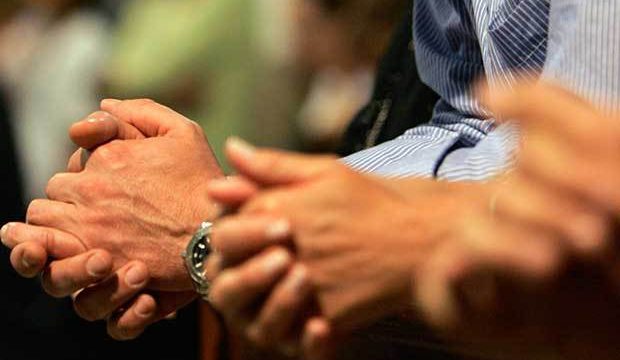Supreme Court: Prayer At Town Council Meetings Is Ok

“The prayer opportunity is evaluated against the backdrop of a historical practice showing that prayer has become part of the Nation’s heritage and tradition,” wrote Justice Kennedy for the majority in a 5-4 Supreme Court decision upholding prayer at town council meetings. “It is presumed that the reasonable observer is acquainted with this tradition and understands that its purposes are to lend gravity to public proceedings and to acknowledge the place religion holds in the lives of many private citizens.”
He also noted that the target of the prayer is “not the public, but the lawmakers themselves.”
“The inclusion of a brief, ceremonial prayer as part of a larger exercise in civic recognition suggests that its purpose and effect are to acknowledge religious leaders and the institutions they represent, rather than to exclude or coerce nonbelievers,” Kennedy wrote.
That seems like a reasonable enough ruling to me. You can read the opinion here.
A federal appeals court had previously ruled that the prayers were unconstitutional.
Frankly, I think this sort of thing ought to be a local matter. It’s hard to see a prayer at the beginning of a public event, be it a session of the state legislature or the local park board, as running contrary to the 1st amendment’s prohibition on state establishment of religion. As long as nobody is being forced to participate in the prayers, and as long as the prayers are reasonably inclusive of different religious doctrines, I don’t see why they should be unconstitutional.
Many see the 1st amendment as being exclusionary law that prohibits the inclusion of religion in the public square, but I think that’s mistaken. I think the 1st amendment should be seen as inclusive law that invites all religious doctrines into the public square instead of excluding them all.
If a given city council or legislature wants to stop their prayers for whatever reason, that’s fine. Let it be a local decision. But let’s not bend the 1st amendment into something it isn’t because a small, vocal minority can’t tolerate religious expression in public.




